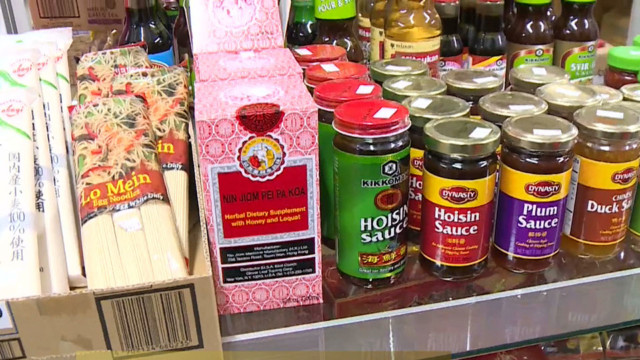An ancient herbal remedy used for over a century in China as a sort of cough medicine is becoming all the rage in New York City, but some medical experts are worried it’s being used to fight the flu, which has been more deadly than in years past.
CGTN’s Karina Huber reports.
The Pearl River Mart, which opened 47 years ago in New York, has long been known for its wide selection of products from China.
They include the herbal supplement Nin Jiom Pei Pa Koa – that reportedly dates from the Qing dynasty hundreds of years ago.
The main ingredients include fritillaria bulbs, a perennial flower, and loquat – a sweet fruit.
For years, the herbal remedy has been popular among the store’s Chinese clientele who have used the syrup as a cough medicine and to relieve sore throats.
But more recently, Caucasian customers have been picking it up.
“I think it has something to do with the whole changing of world,” Ching Yeh Chen, Managing Member at Pearl River Mart said. “Because Chinese things used to be a secret. Now the secret is gradually open. It’s like a treasure box. You see more and more things and this is one of them.”
The Hong Kong-based pharmaceutical company that makes Nin Jiom Pei Pa Koa got a big boost to its stock on news of its growing popularity in the U.S., but some are concerned about all the attention it’s getting.
This year’s flu season has been particularly severe in the U.S. with the highest number of hospitalizations in nearly a decade, according to health officials. There have been reports of some people using Pei Pa Koato fight the flu, but medical experts warn it shouldn’t be the first line of defense.
“That sort of medicine hasn’t been proven in good scientific studies to protect a person from getting the flu, so I do worry about people taking medicines that are not well regulated or may have side effects or interactions with other medications,” said Keith Brenner, Pulmonary Doctor at Columbia University’s Medical Center.
Brenner says the best protection against influenza is the flu vaccine. He’s most concerned about vulnerable populations – like older patients with chronic medical conditions – taking herbal remedies that could hide some of the early flu symptoms.
“Because there are medicines that we can prescribe that shorten the duration of the flu and make it less dangerous. But those medicines need to be given early, within the first 48 hours,” said Brenner.
The advice from Brenner and the U.S. Food and Drug Administration is: do your research and be wary of any remedy that sounds too good to be true.
 CGTN America
CGTN America

